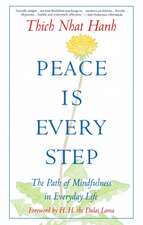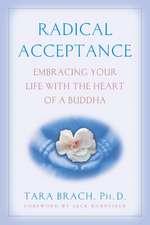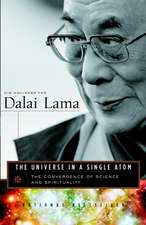The Lotus Still Blooms: Sacred Buddhist Teachings for the Western Mind
Autor Joan Gattusoen Limba Engleză Paperback – 31 iul 2008 – vârsta de la 18 ani
The Lotus Still Blooms is the ideal book for every reader who would like to understand Buddhist principles, but doesn’t know where to start. Eastern wisdom traditions are often baffling for Western minds ߝ where to begin in uncovering the often complicated steps, precepts, concepts and ideas? Aimed at people who are curious about Buddhism and want a basic book that will help them to understand ߝ and apply ߝ Buddhist principles in their life, The Lotus Still Blooms is a practical book that goes through all of the major Buddhist principles, step-by-step, and then shows how to apply them to our busy, hectic lives. Filled with Joan Gattuso’s trademark delightful stories and warmth, as well as exercises to help readers begin using the principles right away, this is a book that will be a welcomed new introduction to this exciting spiritual tradition.
Preț: 131.34 lei
Nou
Puncte Express: 197
Preț estimativ în valută:
25.14€ • 26.14$ • 20.75£
25.14€ • 26.14$ • 20.75£
Carte disponibilă
Livrare economică 25 martie-08 aprilie
Preluare comenzi: 021 569.72.76
Specificații
ISBN-13: 9781585426379
ISBN-10: 1585426377
Pagini: 196
Dimensiuni: 159 x 206 x 15 mm
Greutate: 0.22 kg
Editura: Tarcher
ISBN-10: 1585426377
Pagini: 196
Dimensiuni: 159 x 206 x 15 mm
Greutate: 0.22 kg
Editura: Tarcher
Notă biografică
Bestselling author Joan Gattuso brings deep, personal insight to all her writing. Her in-depth studies with His Holiness the Dalai Lama has given her the necessary background for her unique look at Tibetan Buddhism. She is the author of the bestselling A Course in Love and A Course in Life, both of which have been translated into several languages. Also a dynamic speaker, she is a Unity minister in Shaker Heights, Ohio. Her spiritual path has taken her around the world to study with renowned spiritual leaders. She lives in Ohio with her husband David Alexander.
Extras
All great religions have methods for overcoming suffering. Buddhism is just one example.
—His Holiness the Dalai Lama
Introduction
While on a book tour in Los Angeles, a totally unexpected and life- expanding event began to unfold. I had a free afternoon in which my childhood friend Ginna, then the chef at Deepak Chopra's healing center, was coming to fetch me for the day. She was temporarily on leave from the healing center, living in the Los Angeles area and working as the personal chef for an action-movie hero while he was getting in shape for his upcoming movie.
Ginna offered me a choice: Would I prefer to go to his movie set, or would I like to see his home in Bel Air? I instantly chose his home, a spontaneous decision for which I remain grateful to this day.
The Bel Air area is most luxurious, lined with manicured estates. We pulled through the gates of a grand home. Upon entering we were greeted in the kitchen by the young live- in girlfriend, who appeared to be a little upset. Ginna, multitalented artist, chef, earth- mother goddess personified, said she needed to talk with the young woman. Did I mind being alone for a while? Of course I told Ginna I did not. It was fascinating sitting in the kitchen observing the famous movie star's domestic life filled with two nannies, a cook, a helper and a chauffeur—all in the kitchen at the same time. I took in a very animated conversation in the midst of the unpacked groceries that were everywhere. Then the unexpected occurred.
Through the kitchen doorway two Tibetan monks in robes and wearing mala beads entered the kitchen. I immediately stood and bowed to them. They bowed to me, while my brain raced to comprehend this increasingly bizarre kitchen scene. The monks took seats opposite me at the kitchen table. We introduced ourselves. They were guests in the actor's home while they were studying English at UCLA. The older of the two barely understood English, while the younger was fairly fluent.
After only a few minutes the younger one innocently, "Do you want to come to my room?"
I was for a fraction of a second taken aback, not having received such an offer in many a year, let alone from a young Tibetan monk in saffron robes. "Okay, I guess so," I responded haltingly. This is how I met Lama Chonam, my most precious Buddhist friend.
We walked through the great rooms of the mansion and up the stairs to the second floor. When we reached his room, the young monk opened the door and we entered. It was more like a sanctuary than a bedroom. It consisted of a beautiful altar with many butter candles burning, artistic figures of the Buddha, and various Taras and bodhisattvas.
He placed two chairs near the altar, and we sat at a right angle to each other. In the depths of my being I knew this was a significant occurrence.
He opened his heart to me that afternoon, telling me of his arduous es cape from Tibet over the Himalayas and into Nepal. His tales were spellbinding. He was amazed that I had been studying with the Dalai Lama for several years and had married my Western spiritual education to my Tibetan practices. We sat together for two hours deeply engaged in conversation, like two lost friends who had finally found each other again after many years or lifetimes of being separated. When it was time to go, he walked me to the car and said, "We must have very good karma together." Then he did an extraordinary thing for a monk. He reached out and hugged me, and I hugged him in return. "I have met many Americans," he said, "but I never have met anyone that I felt so connected to. It is like we are meeting again. And you came to this house so we could meet. We shall meet again."
And so we have, many times. He has taught Buddhism at my church, and as the years have gone by he has become a respected teacher in his own right within Buddhism. Lama Chonam has the purest heart of anyone I personally know. And to think that on the day I thought I was to see a movie star's home, a Tibetan monk saw my heart and I saw his. I share this tender story because it so solidified for me that it is possible to remain a minister of Christian metaphysics and also to incorporate the Buddhist teachings on my path. Meeting Lama Chonam was for me a Divine message saying, Yes, it can and does all weave together into a most meaningful whole.
My journey in Buddhism began many years earlier, in the autumn of 1991, when two life- altering events occurred for me. The first was surgery for uterine cancer, and the second was my first encounter with the teachings of Tibetan Buddhism and being with His Holiness the Dalai Lama.
This second event happened at Madison Square Garden in New York City, where I arrived in a wheelchair, just days out of surgery. Going to New York was one of those absolute knowings in life, where from my toes to my soul I just knew I had to go.
A friend in my congregation who was deeply attached to the people of India and Nepal, having adopted a child from each country, encouraged me to accompany her. I "knew" I was meant to go. The journey was undertaken much to my husband David's consternation, since it was so few days after major surgery. I went having no idea what to expect or how my life would be forever changed.
At that first encounter of the teachings my knowledge of Buddhism was minuscule. I had, however, been practicing a Buddhist contemplation technique known as Mindfulness Meditation for more than a dozen years. I simply listened to my inner urging to attend and went. In short order a long- slumbering Eastern soul—more aligned with Eastern thought and culture than Western—within me began to stir and awaken. From that day to this I have inquired, studied, practiced, traveled, retreated and now teach what I have learned and am learning.
I am not a Buddhist teacher and have no claims of being such. I have been a student of eternal truths and a teacher of spiritual principle for more than thirty years. In retrospect it seems logical that my initial awakening began with the Unity Church, of which I have been a minister for twenty- nine years. Unity is a nondenominational spiritual movement of churches that focuses on the emerging of the inner spirit and teaches one to seek to know and practice the eternal principles of truth. Unity is not about dogma or creed, but rather bringing forth, as Thoreau stated, "the inner splendor." Next my soul moved into the spiritual text A Course in Miracles, from its initial emergence into the spiritual culture of America in the 1970s. Today it is a popular tome containing eternal truths. As a student of these two paths I easily found points of agreement and fused both into my awakening consciousness. My friend Andrew Harvey, the twenty- first- century mystic, says, "All true spiritual teachings ultimately converge." They were converging in my soul.
I have studied Tibetan Buddhism since that first encounter with His Holiness the Dalai Lama in 1991. The spiritual disciplines I have learned on my path have become so much a part of me that I have begun to constantly have insights and realizations on the ultimate nature of reality. There is a point where all teachings converge and the common thread of truth can be seen. That is happening in my life, and I am endeavoring to share how that can occur with you in your life.
As the years passed, and my study of Tibetan Buddhism deepened, I began to see clearly this convergence of Buddhism, my Unity teachings, the teachings in A Course in Miracles and myriad teachings in other spiritual books. I was excited. I was on fire with the possibility of true awakening. I realized, as I have heard the Dalai Lama say on several occasions: "The great truths are all the same." I was seeing the sameness. I was living and breathing and practicing the sameness. And I was an American woman, a minister of a church that refers to what it teaches as practical Christianity.
A way to embrace the message of Jesus on a very practical level is to take these treasured teachings of Jesus and apply one or another to any of life's circumstances. We are not about worshipping Jesus Christ; rather we direct our spiritual paths toward becoming a Christed being just as Buddhists aspire to become a Buddha. Regardless of the label one places on it, the sea of our Divine nature lies in every one of us. The great joy with Tibetan Buddhism is the numerous phenomenal spiritual tools and formulas for living that lead to an awakened spiritual life.
These formulas offer tremendous value to the Western practitioner of spirituality, no matter what one's religious orientation. The formulas come to us from millennia ago overflowing with numbers: three of this; six of that; four of another having eight within it. As he read this book, my editor frequently pointed out that I was writing about yet another number. I did not make up these numbers, but I do believe I am one who can help you, the reader, navigate through them in such a way that you can understand and utilize them to better your life. You need not be overwhelmed.
My journey is extraordinary and blessed, and it is one I have always wanted to understand on deeper and deeper levels. Since that first trip in 1991, I have studied with the Dalai Lama numerous times. I have traveled to France to the monastery of Vietnam monk Thich Nhat Hanh, from whom I have incorporated so much wisdom and keen insight into my journey, which I share with you later in this book. This Zen monk, who left his home country during the Vietnam war to take part in peace negotiations in France, was forbidden by his government to return to his war- torn homeland. What the Buddhists teach is a soul science. "Buddhism promotes understanding, not belief. Christianity promotes belief, not understanding," says noted American Buddhist scholar Dr. Robert Thurman. This simple statement sums up these two spiritual paths succinctly and clearly and points out their differences.
Tibetan Buddhism's teachings are so valuable because over the course of 2,500 years the monks and nuns have consistently practiced and refined them, sharing knowledge of how the soul works. In Buddhism it is said there are literally 84,000 teachings. I will offer the key teachings of Buddhism in this book, which is a result of my personal journey.
Buddhism, I believe, can work in concert with Christianity to create an ever- growing spiritual synergy. It has done and continues to do that for me. It has always been and continues to be of utmost importance to me that whatever I study or practice or teach be psychologically sound. This was a key factor in my coming into Unity and remains so to this day. It is my personal lens through which I evaluate a teaching or philosophy.
For one just beginning an exploration of Buddhism, it can be a daunting undertaking. What I've done in this book is taken the major concepts that I've studied for seventeen years and set out to explain them for the Western reader.
The Lotus Still Blooms deeply explores a number of the major tenets of Buddhism in a methodical and practical manner that can immediately be practiced by the reader.
Taking my cue from where the Buddha began, I have begun with the Four Noble Truths and followed them with the Eight- fold Path. The subsequent chapters are all based upon teachings I have gleaned primarily from His Holiness the Dalai Lama, but also from other Buddhist monks and nuns.
This material has liberated and transformed my life and the lives of many whom I have taught. It can do the same for you if you read and study and practice. May the message of The Lotus Still Blooms fill your heart daily with inspiration and the deep desire for your own life to be liberated.
The lotus symbolizes the gorgeous flower that rises out of the mud of this world. It is a symbol of purity and spontaneous Divine birth. It is said to be the throne of the Buddha. May it come to be your throne of wisdom and love, as the lotus still blooms in you.
We all have spiritual gifts, and I have long been told that one of my greatest is to take complex concepts on spiritual subjects and teach and explain them in a practical and understandable manner that can be utilized in one's day- to- day living. May this be the case for you. While you read and study this book, I hold this prayer for you:
May you be filled with loving kindness.
May you be well.
May you be peaceful and at ease.
May you be happy.
Joan Gattuso Molokai, Hawaii
—His Holiness the Dalai Lama
Introduction
While on a book tour in Los Angeles, a totally unexpected and life- expanding event began to unfold. I had a free afternoon in which my childhood friend Ginna, then the chef at Deepak Chopra's healing center, was coming to fetch me for the day. She was temporarily on leave from the healing center, living in the Los Angeles area and working as the personal chef for an action-movie hero while he was getting in shape for his upcoming movie.
Ginna offered me a choice: Would I prefer to go to his movie set, or would I like to see his home in Bel Air? I instantly chose his home, a spontaneous decision for which I remain grateful to this day.
The Bel Air area is most luxurious, lined with manicured estates. We pulled through the gates of a grand home. Upon entering we were greeted in the kitchen by the young live- in girlfriend, who appeared to be a little upset. Ginna, multitalented artist, chef, earth- mother goddess personified, said she needed to talk with the young woman. Did I mind being alone for a while? Of course I told Ginna I did not. It was fascinating sitting in the kitchen observing the famous movie star's domestic life filled with two nannies, a cook, a helper and a chauffeur—all in the kitchen at the same time. I took in a very animated conversation in the midst of the unpacked groceries that were everywhere. Then the unexpected occurred.
Through the kitchen doorway two Tibetan monks in robes and wearing mala beads entered the kitchen. I immediately stood and bowed to them. They bowed to me, while my brain raced to comprehend this increasingly bizarre kitchen scene. The monks took seats opposite me at the kitchen table. We introduced ourselves. They were guests in the actor's home while they were studying English at UCLA. The older of the two barely understood English, while the younger was fairly fluent.
After only a few minutes the younger one innocently, "Do you want to come to my room?"
I was for a fraction of a second taken aback, not having received such an offer in many a year, let alone from a young Tibetan monk in saffron robes. "Okay, I guess so," I responded haltingly. This is how I met Lama Chonam, my most precious Buddhist friend.
We walked through the great rooms of the mansion and up the stairs to the second floor. When we reached his room, the young monk opened the door and we entered. It was more like a sanctuary than a bedroom. It consisted of a beautiful altar with many butter candles burning, artistic figures of the Buddha, and various Taras and bodhisattvas.
He placed two chairs near the altar, and we sat at a right angle to each other. In the depths of my being I knew this was a significant occurrence.
He opened his heart to me that afternoon, telling me of his arduous es cape from Tibet over the Himalayas and into Nepal. His tales were spellbinding. He was amazed that I had been studying with the Dalai Lama for several years and had married my Western spiritual education to my Tibetan practices. We sat together for two hours deeply engaged in conversation, like two lost friends who had finally found each other again after many years or lifetimes of being separated. When it was time to go, he walked me to the car and said, "We must have very good karma together." Then he did an extraordinary thing for a monk. He reached out and hugged me, and I hugged him in return. "I have met many Americans," he said, "but I never have met anyone that I felt so connected to. It is like we are meeting again. And you came to this house so we could meet. We shall meet again."
And so we have, many times. He has taught Buddhism at my church, and as the years have gone by he has become a respected teacher in his own right within Buddhism. Lama Chonam has the purest heart of anyone I personally know. And to think that on the day I thought I was to see a movie star's home, a Tibetan monk saw my heart and I saw his. I share this tender story because it so solidified for me that it is possible to remain a minister of Christian metaphysics and also to incorporate the Buddhist teachings on my path. Meeting Lama Chonam was for me a Divine message saying, Yes, it can and does all weave together into a most meaningful whole.
My journey in Buddhism began many years earlier, in the autumn of 1991, when two life- altering events occurred for me. The first was surgery for uterine cancer, and the second was my first encounter with the teachings of Tibetan Buddhism and being with His Holiness the Dalai Lama.
This second event happened at Madison Square Garden in New York City, where I arrived in a wheelchair, just days out of surgery. Going to New York was one of those absolute knowings in life, where from my toes to my soul I just knew I had to go.
A friend in my congregation who was deeply attached to the people of India and Nepal, having adopted a child from each country, encouraged me to accompany her. I "knew" I was meant to go. The journey was undertaken much to my husband David's consternation, since it was so few days after major surgery. I went having no idea what to expect or how my life would be forever changed.
At that first encounter of the teachings my knowledge of Buddhism was minuscule. I had, however, been practicing a Buddhist contemplation technique known as Mindfulness Meditation for more than a dozen years. I simply listened to my inner urging to attend and went. In short order a long- slumbering Eastern soul—more aligned with Eastern thought and culture than Western—within me began to stir and awaken. From that day to this I have inquired, studied, practiced, traveled, retreated and now teach what I have learned and am learning.
I am not a Buddhist teacher and have no claims of being such. I have been a student of eternal truths and a teacher of spiritual principle for more than thirty years. In retrospect it seems logical that my initial awakening began with the Unity Church, of which I have been a minister for twenty- nine years. Unity is a nondenominational spiritual movement of churches that focuses on the emerging of the inner spirit and teaches one to seek to know and practice the eternal principles of truth. Unity is not about dogma or creed, but rather bringing forth, as Thoreau stated, "the inner splendor." Next my soul moved into the spiritual text A Course in Miracles, from its initial emergence into the spiritual culture of America in the 1970s. Today it is a popular tome containing eternal truths. As a student of these two paths I easily found points of agreement and fused both into my awakening consciousness. My friend Andrew Harvey, the twenty- first- century mystic, says, "All true spiritual teachings ultimately converge." They were converging in my soul.
I have studied Tibetan Buddhism since that first encounter with His Holiness the Dalai Lama in 1991. The spiritual disciplines I have learned on my path have become so much a part of me that I have begun to constantly have insights and realizations on the ultimate nature of reality. There is a point where all teachings converge and the common thread of truth can be seen. That is happening in my life, and I am endeavoring to share how that can occur with you in your life.
As the years passed, and my study of Tibetan Buddhism deepened, I began to see clearly this convergence of Buddhism, my Unity teachings, the teachings in A Course in Miracles and myriad teachings in other spiritual books. I was excited. I was on fire with the possibility of true awakening. I realized, as I have heard the Dalai Lama say on several occasions: "The great truths are all the same." I was seeing the sameness. I was living and breathing and practicing the sameness. And I was an American woman, a minister of a church that refers to what it teaches as practical Christianity.
A way to embrace the message of Jesus on a very practical level is to take these treasured teachings of Jesus and apply one or another to any of life's circumstances. We are not about worshipping Jesus Christ; rather we direct our spiritual paths toward becoming a Christed being just as Buddhists aspire to become a Buddha. Regardless of the label one places on it, the sea of our Divine nature lies in every one of us. The great joy with Tibetan Buddhism is the numerous phenomenal spiritual tools and formulas for living that lead to an awakened spiritual life.
These formulas offer tremendous value to the Western practitioner of spirituality, no matter what one's religious orientation. The formulas come to us from millennia ago overflowing with numbers: three of this; six of that; four of another having eight within it. As he read this book, my editor frequently pointed out that I was writing about yet another number. I did not make up these numbers, but I do believe I am one who can help you, the reader, navigate through them in such a way that you can understand and utilize them to better your life. You need not be overwhelmed.
My journey is extraordinary and blessed, and it is one I have always wanted to understand on deeper and deeper levels. Since that first trip in 1991, I have studied with the Dalai Lama numerous times. I have traveled to France to the monastery of Vietnam monk Thich Nhat Hanh, from whom I have incorporated so much wisdom and keen insight into my journey, which I share with you later in this book. This Zen monk, who left his home country during the Vietnam war to take part in peace negotiations in France, was forbidden by his government to return to his war- torn homeland. What the Buddhists teach is a soul science. "Buddhism promotes understanding, not belief. Christianity promotes belief, not understanding," says noted American Buddhist scholar Dr. Robert Thurman. This simple statement sums up these two spiritual paths succinctly and clearly and points out their differences.
Tibetan Buddhism's teachings are so valuable because over the course of 2,500 years the monks and nuns have consistently practiced and refined them, sharing knowledge of how the soul works. In Buddhism it is said there are literally 84,000 teachings. I will offer the key teachings of Buddhism in this book, which is a result of my personal journey.
Buddhism, I believe, can work in concert with Christianity to create an ever- growing spiritual synergy. It has done and continues to do that for me. It has always been and continues to be of utmost importance to me that whatever I study or practice or teach be psychologically sound. This was a key factor in my coming into Unity and remains so to this day. It is my personal lens through which I evaluate a teaching or philosophy.
For one just beginning an exploration of Buddhism, it can be a daunting undertaking. What I've done in this book is taken the major concepts that I've studied for seventeen years and set out to explain them for the Western reader.
The Lotus Still Blooms deeply explores a number of the major tenets of Buddhism in a methodical and practical manner that can immediately be practiced by the reader.
Taking my cue from where the Buddha began, I have begun with the Four Noble Truths and followed them with the Eight- fold Path. The subsequent chapters are all based upon teachings I have gleaned primarily from His Holiness the Dalai Lama, but also from other Buddhist monks and nuns.
This material has liberated and transformed my life and the lives of many whom I have taught. It can do the same for you if you read and study and practice. May the message of The Lotus Still Blooms fill your heart daily with inspiration and the deep desire for your own life to be liberated.
The lotus symbolizes the gorgeous flower that rises out of the mud of this world. It is a symbol of purity and spontaneous Divine birth. It is said to be the throne of the Buddha. May it come to be your throne of wisdom and love, as the lotus still blooms in you.
We all have spiritual gifts, and I have long been told that one of my greatest is to take complex concepts on spiritual subjects and teach and explain them in a practical and understandable manner that can be utilized in one's day- to- day living. May this be the case for you. While you read and study this book, I hold this prayer for you:
May you be filled with loving kindness.
May you be well.
May you be peaceful and at ease.
May you be happy.
Joan Gattuso Molokai, Hawaii
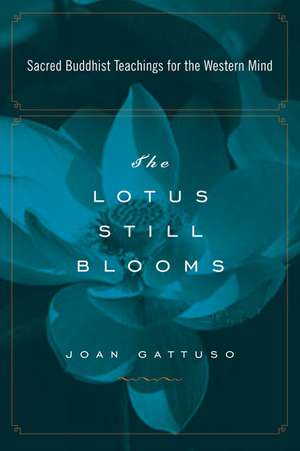



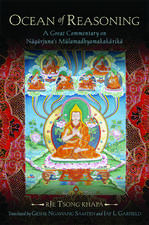
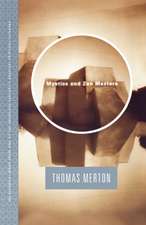
![The Way of Zen =: [Zendao]](https://i0.books-express.ro/bt/9780375705106/the-way-of-zen.jpg)



